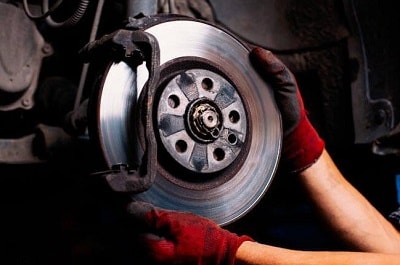
Keeping up with regular maintenance and service is what helps your car keep running effectively and driving safely. As the system that controls if you're able to stop, brakes might just be the most important part of keeping you safe.
Bleeding brakes is a term that everyone might not know, but it's important for drivers in Delray Beach and Boynton Beach to be familiar with this service. To help you learn about the whole process Audi West Palm Beach put together this guide on how to bleed brakes.
Bleeding Your Brakes
 Bleeding your brakes is a simple but detailed process. It starts with finding a small nozzle behind your brakes called a brake bleeder. This is usually located on the inside of the wheel.
Bleeding your brakes is a simple but detailed process. It starts with finding a small nozzle behind your brakes called a brake bleeder. This is usually located on the inside of the wheel.
You'll have to do this for each wheel but in the correct order. In most cars you'll have to start with the wheel furthest away from the master cylinder.
Loosen the brake bleeder screw with a wrench. Next, get a bottle or jar and some rubber tubing. You'll connect one end of the tube to the brake bleeder and put the other end in the bottle or jar.
Here's where this becomes a 2-man job. Have a friend pump the brake pedal several times and then have them hold the pedal down. With the brake pedal pushed all the way down, loosen the bleeder screw a little more.
Brake fluid should start squirting out instantly. Once it stops, tighten the screw all the way again and tell your friend to release the brake pedal.
Repeat this process for all four of your wheels, then add new brake fluid to the master cylinder.
Why You Should Bleed Your Brakes
Your brakes work by transferring pressure. When you step on your brake pedal, the master cylinder pushes brake fluid out to your wheels. Once its there, the pressure you applied to the brake pedal is then transferred to a series of calipers.
These calipers clamp down on the spinning rotors inside your wheels. The pressure they apply to the rotors creates friction and slows down or stops your car.
For this system to work properly, your brake fluid needs to flow freely. If there are any air bubbles in your brake lines, they're not going to be nearly as responsive.
When to Bleed Brakes
 Bleeding your brakes is necessary for your safety. Being able to come to complete stop is crucial to you and every car and pedestrian around you. So, when exactly should you make sure to bleed your brakes?
Bleeding your brakes is necessary for your safety. Being able to come to complete stop is crucial to you and every car and pedestrian around you. So, when exactly should you make sure to bleed your brakes?
Unlike most routine maintenance jobs, there's no mileage or time frame for how you often this needs to be done because its actually a response to other maintenance. You need to bleed your brakes every time you do any work on the brake system.
Whether its replacing the brake pads, rotors, or calipers, you should bleed the brakes afterwards to make sure that the lines are clear, and your brakes are responsive. Even leaving the master cylinder cap off for too long can let air in, so it's a safe practice to bleed your brakes every time any part of your brake system is touched.
Audi Brakes & Service
At Audi West Palm Beach, we are proud to have a service center with expertly trained and certified technicians who can handle everything from brake work to major repairs for drivers in Boynton Beach and Delray Beach.
Visit our service center to learn more about how to bleed brakes or schedule an appointment with one of our technicians.